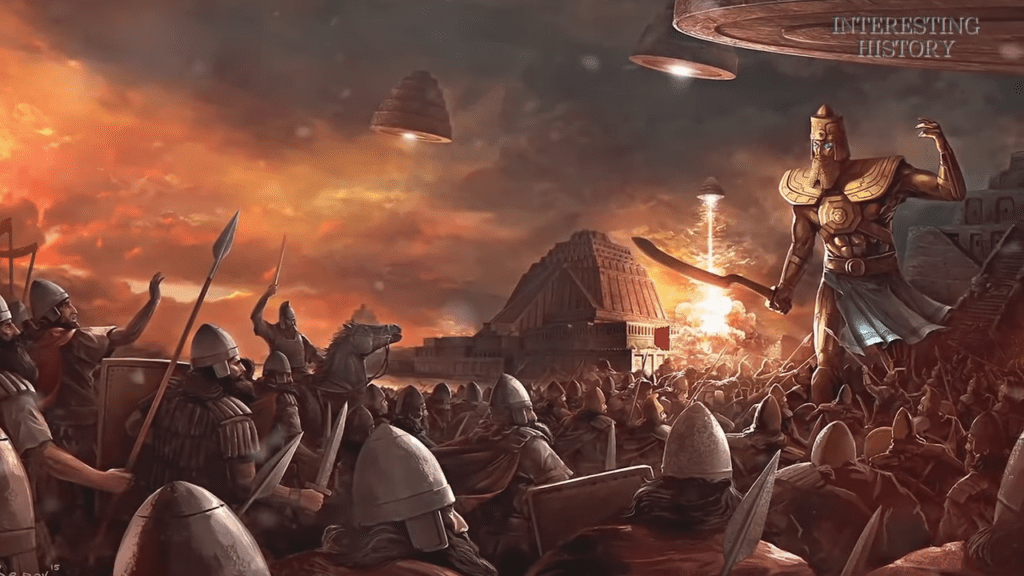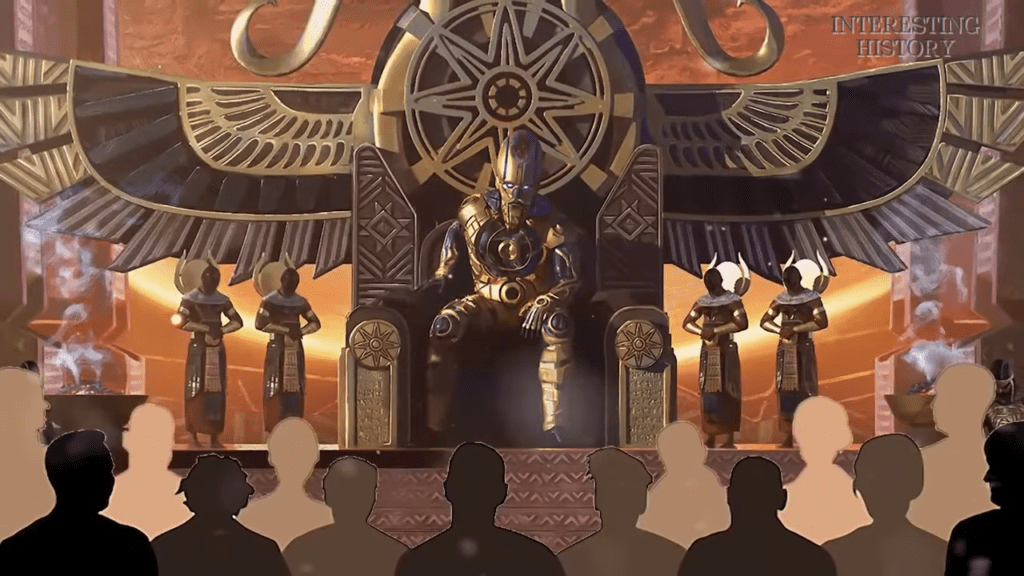In the annals of human history, amidst the rise of civilizations and the echoes of bygone eras, there exists a narrative that transcends the boundaries of myth and reality – the tale of the Anunnaki, ancient Sumerian “alien” gods whose presence continues to captivate and intrigue.

The dawn of civilization in Mesopotamia, around 4500 BC, bore witness to the emergence of the Sumerian civilization, a beacon of innovation and cultural achievement. Yet, beneath the surface of their achievements lay a story shrouded in mystery and wonder – the saga of the Anunnaki.
According to Sumerian texts discovered on clay tablets, the Anunnaki hailed from a distant planet named Nibiru, which traversed the cosmos in a cyclical orbit intersecting with Earth every 3600 years. Facing dire environmental challenges on Nibiru, the Anunnaki sought to harness the Earth’s resources, particularly gold, to sustain their dwindling civilization.
Arriving on Earth approximately 445,000 years ago, the Anunnaki established themselves in Mesopotamia, where they built the magnificent city of Eridu and created the lush garden of Eden. Yet, their quest for gold led to the enslavement of another alien race, the Igigi, sparking a rebellion and the first war on Earth.

In need of compliant laborers, the Anunnaki embarked on a bold experiment – the genetic manipulation of the indigenous species to create a hybrid race, Homo sapiens. Thus, humanity was born, bearing the genetic imprint of its divine creators.
Over time, humans flourished under the tutelage of the Anunnaki, learning the arts of agriculture, architecture, and civilization itself. However, tensions arose as human population growth exceeded the Anunnaki’s expectations, leading to the expulsion of many from the paradise of Eden.

As Nibiru’s return loomed, bringing cataclysmic floods and the destruction of Eridu, the Anunnaki departed Earth, leaving behind a legacy of knowledge and culture. They bestowed upon humanity the gifts of civilization – language, mathematics, and governance – laying the foundation for future civilizations to thrive.
Throughout Sumerian mythology, the pantheon of the Anunnaki reflects a complex hierarchy of gods and goddesses, each embodying different aspects of nature and cosmic forces. From Anu, the wise patriarch of the heavens, to Enki, the god of the oceans and rivers, and Inanna, the queen of fertility and war, these deities shaped the destinies of humanity with their divine wisdom and power.
The legacy of the Anunnaki endures in the annals of history, their enigmatic presence echoing through the ages. Their story, preserved in Sumerian texts, offers a glimpse into the mysteries of our ancient past, inviting us to ponder the origins of humanity and the secrets of the cosmos.
As we delve into the depths of ancient mythology, we are confronted with questions that transcend time and space, challenging our understanding of the universe and our place within it. The tale of the Anunnaki serves as a reminder of humanity’s enduring quest for knowledge and meaning, a journey that continues to unfold with each passing age.




